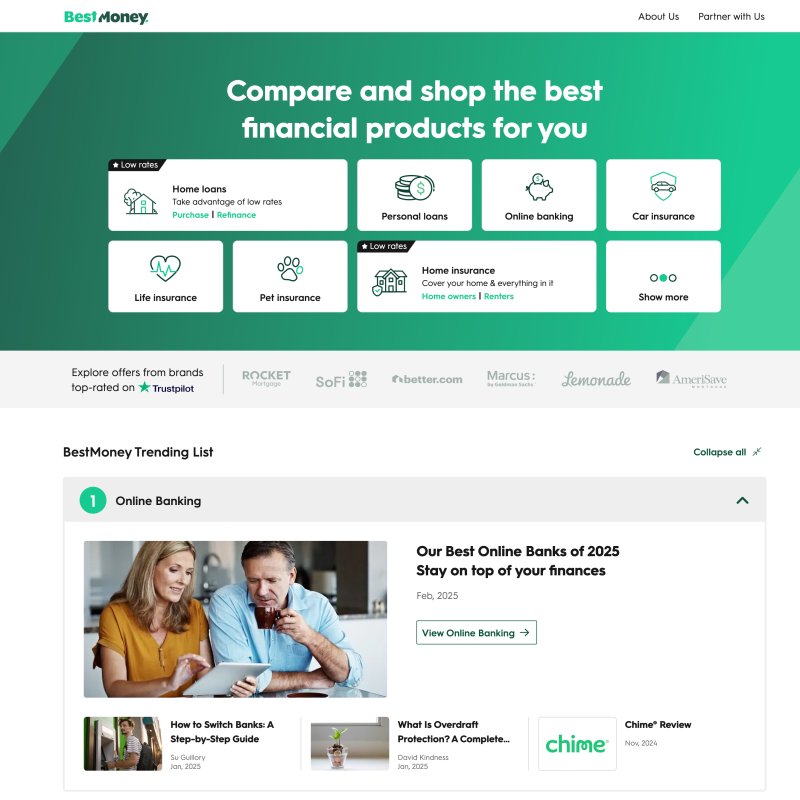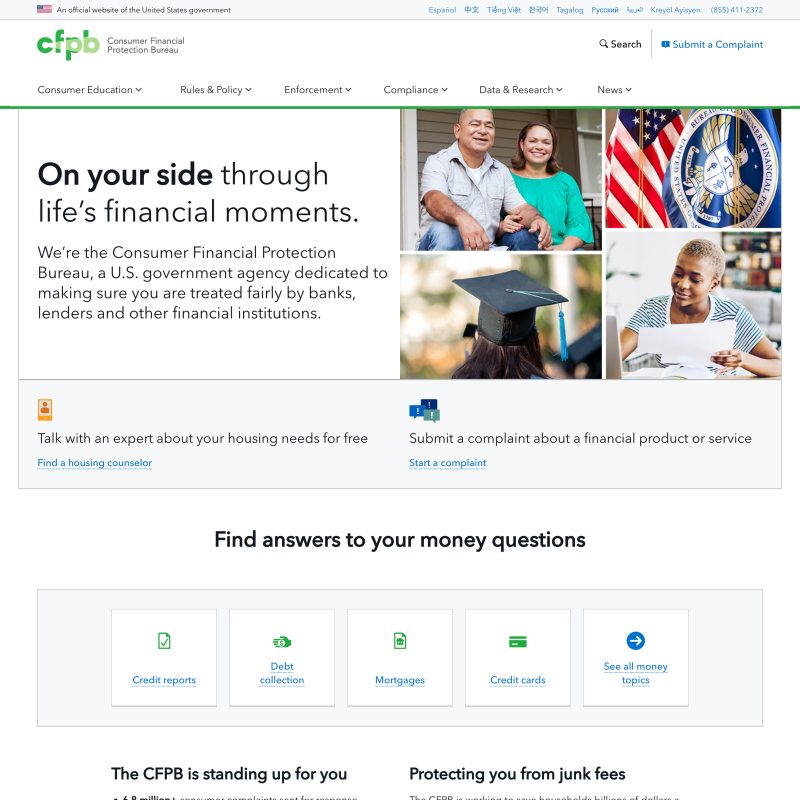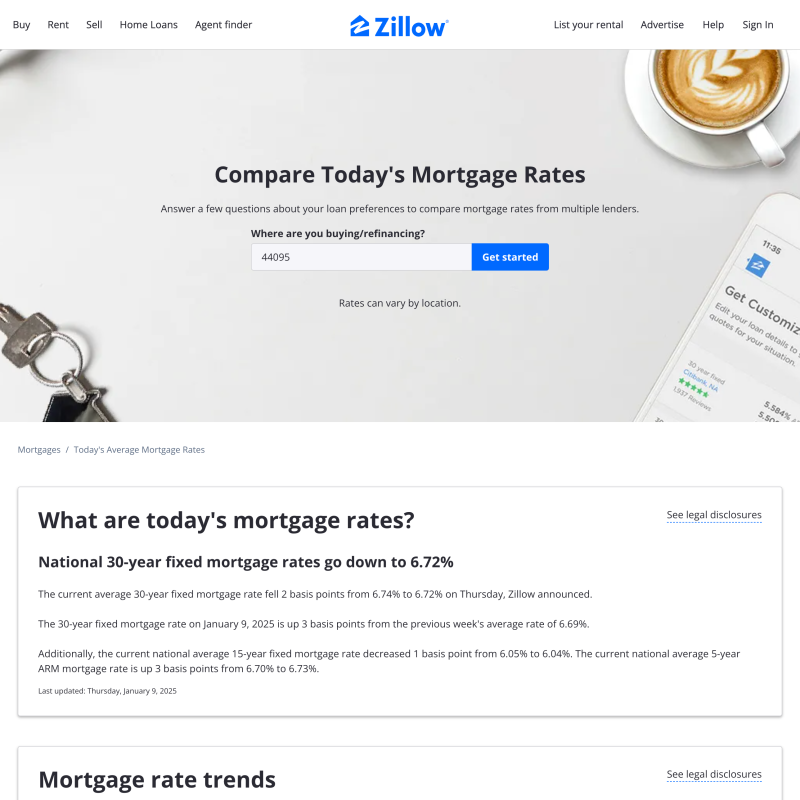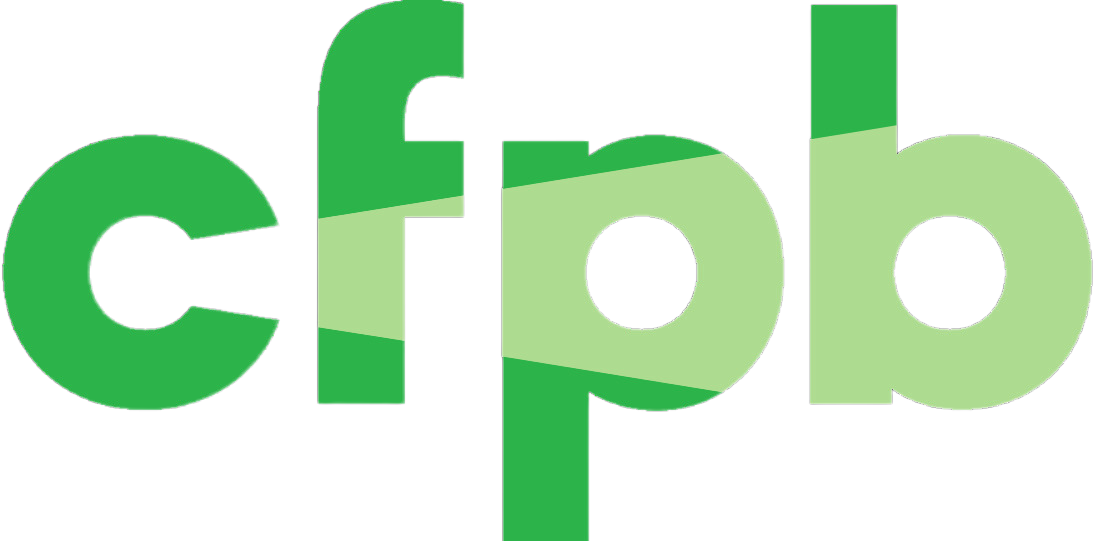When it comes to financing a home purchase or refinancing an existing mortgage, selecting the right loan is crucial. The process requires careful consideration of options, terms, and financial implications. This guide provides key insights into making informed decisions that align with your goals and circumstances.
What We'll Cover
- Why Choosing the Right Loan Matters
- Types of Mortgage Loans
- Key Factors to Consider When Choosing a Loan
- Tips for Refinancing Your Mortgage
- Where to Find Mortgage Information
- BestMoney
- Consumer Financial Protection Bureau (CFPB)
- Bankrate
- Rocket Mortgage by Quicken Loans
- Zillow Mortgage Marketplace
- Steps to Secure the Right Mortgage
- Evaluate Your Financial Situation
- Get Pre-Approved
- Work with a Trusted Mortgage Professional
- Understand the Fine Print
- The Role of Market Trends
- Common Mistakes to Avoid
- Final Thoughts
Why Choosing the Right Loan Matters

Selecting the appropriate loan type directly impacts your financial well-being, monthly payments, and long-term equity. Whether you're purchasing your first home or refinancing for better terms, understanding the nuances of different mortgage products is vital.
Types of Mortgage Loans
Fixed-Rate Mortgages
Fixed-rate mortgages offer stability with consistent monthly payments over the life of the loan. These loans are ideal for buyers planning to stay in their home for many years. Key benefits include:
- Predictable payments.
- Protection against interest rate hikes.
- Options for various loan terms, such as 15, 20, or 30 years.
Adjustable-Rate Mortgages (ARMs)
Adjustable-Rate Mortgages (ARMs) begin with a lower initial interest rate that adjusts periodically based on market conditions. These loans can be beneficial for buyers planning to move or refinance before the adjustment period starts. Key features to consider include:
- Lower starting rates compared to fixed-rate loans.
- Rate adjustments tied to market indices.
- Caps that limit the amount rates can increase.

FHA Loans
FHA loans are government-backed options designed for borrowers with less-than-perfect credit or limited savings for a down payment. Benefits include:
- Lower credit score requirements.
- Down payments as low as 3.5%.
- Flexible qualification criteria.
VA Loans
Available to eligible veterans, service members, and their families, VA loans offer attractive terms with no down payment required. Additional advantages are:
- No private mortgage insurance (PMI).
- Competitive interest rates.
- Assistance for struggling borrowers.
Jumbo Loans
For high-priced properties exceeding conforming loan limits, jumbo loans provide the necessary financing. These loans often come with stricter qualification requirements, such as:
- Higher credit score thresholds.
- Larger cash reserves.
- Strong income documentation.
Key Factors to Consider When Choosing a Loan

Interest Rates
Interest rates play a pivotal role in determining your loan's overall cost. A lower rate can result in significant savings over time. Compare rates across lenders and consider locking in a rate if market conditions are favorable.
Loan Terms
The term of your mortgage affects your monthly payments and the total interest paid. Shorter terms, such as 15 years, typically have higher monthly payments but lower overall costs. Longer terms, like 30 years, spread payments out but increase interest expenses.
Down Payment
The size of your down payment influences your loan-to-value (LTV) ratio and may affect your interest rate. Larger down payments can reduce the need for PMI and improve your loan terms.
Closing Costs
Closing costs include fees for appraisals, title insurance, and other services. These can add up to 2–5% of the loan amount. Some lenders offer no-closing-cost options, which may involve slightly higher interest rates.
Prepayment Penalties
Check if your loan has penalties for early repayment. Avoiding loans with prepayment penalties gives you the flexibility to pay off your mortgage faster without incurring additional charges.
Tips for Refinancing Your Mortgage

Assess Your Goals
Refinancing can help you achieve various objectives, such as reducing monthly payments, shortening the loan term, or accessing home equity. Clarify your goals to determine if refinancing makes sense.
Check Your Credit Score
A strong credit score often qualifies you for better refinance terms. Review your credit report and address any inaccuracies before applying.
Compare Lenders
Different lenders offer varying refinance rates and terms. Shop around and request loan estimates to find the best fit for your needs.
Consider Break-Even Point
Determine the break-even point to understand the time required to recover your closing costs through savings from a reduced interest rate. Refinancing is beneficial only if you intend to remain in your home past this timeframe.
Where to Find Mortgage Information
BestMoney

BestMoney offers an easy-to-navigate platform that simplifies the mortgage shopping experience. Compare top lenders, view competitive rates, and explore tailored options for purchase or refinance.
Consumer Financial Protection Bureau (CFPB)

A trusted resource offering detailed guides on mortgage loans, refinancing, and your rights as a borrower.
Bankrate

Provides up-to-date mortgage rate comparisons, loan calculators, and expert advice.
Rocket Mortgage by Quicken Loans

Offers an easy-to-use online platform for exploring mortgage products and applying for loans.
Zillow Mortgage Marketplace

Allows you to compare loan offers, research local lenders, and access helpful tools.
Steps to Secure the Right Mortgage

Evaluate Your Financial Situation
Start by assessing your income, debts, and savings. Knowing your financial position helps you determine how much you can afford and what type of loan aligns with your goals.
Get Pre-Approved
Securing a pre-approval from a lender enhances your credibility as a buyer. It demonstrates to sellers that you are committed and provides you with a clear understanding of your borrowing capacity.
Work with a Trusted Mortgage Professional
An experienced loan officer can guide you through the complexities of mortgage options. They can explain terms, highlight potential pitfalls, and help you choose the right product.
Understand the Fine Print
Carefully review loan documents to ensure you understand all terms, fees, and conditions. Seek clarification on anything that feels unclear.
The Role of Market Trends

Mortgage rates and housing market trends can influence your decision. For example, falling rates may make refinancing more attractive, while rising rates could push buyers to lock in rates sooner. Stay informed about current conditions and projections.
Common Mistakes to Avoid
Overlooking Total Costs
Focus not just on the monthly payment but also on the total cost of the loan, including interest and fees.
Borrowing Beyond Your Means
It's tempting to maximize your borrowing capacity, but overstretching your budget can lead to financial stress.
Skipping Pre-Approval
A lack of pre-approval can result in missed opportunities or delays when making an offer.
Final Thoughts

Choosing the right mortgage for your purchase or refinance is an important decision that can have long-term financial implications. By exploring your options, considering key factors, and working with professionals, you can find a loan that fits your needs and sets you on the path to homeownership or financial improvement. Visit platforms like BestMoney for expert insights and tailored options to simplify your mortgage journey.
The responses below are not provided, commissioned, reviewed, approved, or otherwise endorsed by any financial entity or advertiser. It is not the advertiser’s responsibility to ensure all posts and/or questions are answered.
I'm about to buy my first home and I'm feeling a bit overwhelmed by all the mortgage options out there. This article is a lifesaver! It's really helped me understand the different types of loans and what to look for. Any tips on how to negotiate the best interest rate?










